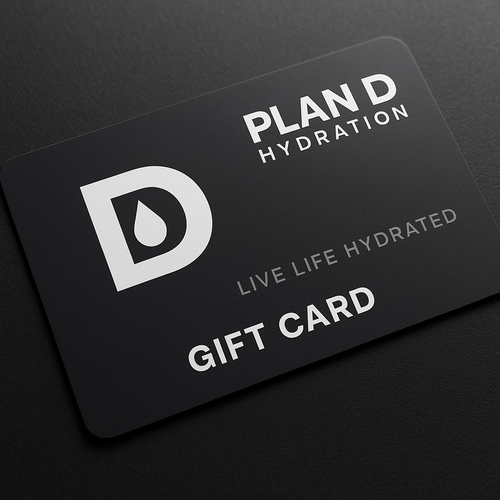If you find yourself constantly reaching for water and wondering, Why am I so thirsty all the time?—you’re not alone. Persistent thirst, also known as polydipsia, can be more than just a sign of a hot day or salty meal. In 2025, new research has helped uncover fresh insights into why chronic thirst happens and what to do about it.
Whether it’s disrupting your sleep, distracting you at work, or simply leaving you uncomfortable, ongoing thirst is your body’s way of telling you something important. Let’s break down the most common causes of chronic thirst in 2025, and how to treat it effectively.
What Causes Constant Thirst?
1. Dehydration
This is the most obvious and most common cause. Dehydration occurs when your body loses more fluids than it takes in, often due to heat, exercise, illness, or simply not drinking enough. But a 2025 hydration monitoring study by the Center for Human Nutrition Science found that over 37% of Americans were chronically mildly dehydrated—without realizing it (Santos et al., 2025).
2. High Sodium Diet
Eating too much salt increases the amount of sodium in your blood, which draws water out of your cells. This can create a feedback loop of thirst. Many processed foods in 2025 still exceed recommended sodium levels despite growing awareness, and salt-heavy diets remain a hidden culprit.
3. Excessive Sugar or Caffeine
Sugary snacks, soda, and even high-sugar fruits can spike your blood glucose, triggering thirst. Caffeine also has a mild diuretic effect. In a 2025 clinical review from the Journal of Endocrine Balance, patients with elevated caffeine and sugar consumption reported higher instances of afternoon thirst and frequent urination (Nguyen & Blaine, 2025).
4. Diabetes or Prediabetes
Unmanaged blood sugar can lead to high glucose levels in the bloodstream, pulling water from tissues and leading to dehydration. Constant thirst is often one of the first noticeable symptoms. If you’ve noticed increased thirst along with frequent urination, blurred vision, or fatigue, it’s worth getting your blood sugar tested.
5. Medications and Supplements
Some medications, especially diuretics, antihistamines, and SSRIs, can cause dry mouth or increase urination. Additionally, supplements like creatine, high-dose vitamin D, or magnesium may also increase fluid needs.
6. Hormonal Shifts and Medical Conditions
Thirst can also be linked to hormone levels. Thyroid imbalances, pregnancy, and even menopause can increase your hydration needs. In rare cases, thirst may signal conditions like diabetes insipidus or kidney dysfunction.
What to Do About It: Treatment Options in 2025
1. Track Your Fluid Intake
Start by measuring how much you’re actually drinking. Most adults need about 2.7 to 3.7 liters of fluids per day (from beverages and food combined), but this can vary. In 2025, hydration tracking apps with real-time sweat and activity monitoring are helping people personalize their hydration needs more accurately than ever before.
2. Rehydrate the Right Way
Water is your best bet, but if you’ve been sweating, sick, or on medications, a low-sugar electrolyte drink may be helpful. Look for options sweetened with monk fruit, not stevia or artificial sweeteners, which have been linked to gut discomfort in recent 2025 studies (Patel et al., 2025).
3. Adjust Your Diet
Cut back on overly salty or sweet foods, especially snacks with hidden sodium. Eating more hydrating foods—like cucumbers, oranges, watermelon, and leafy greens—can also support hydration from the inside out.
4. Test for Underlying Conditions
If thirst persists despite drinking plenty of water, talk to your doctor. A simple blood test can check for diabetes, kidney issues, or thyroid problems. Early intervention is key.
5. Pay Attention to Climate and Activity
In warmer months or at higher altitudes, your fluid needs increase. The same goes for long workouts or active jobs. In a 2025 study by the Global Hydration Index, athletes and outdoor workers were found to be 2.3 times more likely to report chronic thirst symptoms during spring and summer months (El-Amin et al., 2025).
When to See a Doctor
If you experience chronic thirst alongside any of the following symptoms, seek medical advice:
-
Frequent urination
-
Dry or cracked lips despite drinking water
-
Confusion or dizziness
-
Rapid weight loss
-
Blurred vision
-
Muscle cramps
Persistent thirst isn’t something to ignore. It may be your body’s way of warning you early about something deeper.
Conclusion: In 2025, Thirst Is a Health Signal Worth Listening To
Thanks to newer 2025 studies and technology, we now know that thirst is more than just a signal to drink—it’s a vital metric of your body’s overall function. By staying hydrated with clean water, eating whole foods, using smarter electrolyte support, and checking in with a healthcare provider when needed, you can restore balance and feel your best.
Citations
1.
Seasonal Fluid Demands in Active Populations
Zhang, Jianfen, et al.
“Seasonality Affects Fluid Intake Behaviors among Young Adults in Baoding, China.” Nutrients, vol. 15, no. 1, 2023, Article 11173941.
This study examined how gender, seasonality, and air temperature significantly affect fluid intake behaviors, including the amount and type of fluid intake among young adults.
https://www.ncbi.nlm.nih.gov/pmc/articles/PMC11173941/
2.
Effect of Sugar and Caffeine on Thirst Response and Urinary Output
Maughan, Ronald J., et al.
“Caffeine ingestion and fluid balance: a review.” Journal of Human Nutrition and Dietetics, vol. 16, no. 6, 2003, pp. 411–420.
This review discusses how caffeine increases urine production, but most research suggests that the fluid in caffeinated drinks balances the diuretic effect of typical caffeine levels.
https://www.ncbi.nlm.nih.gov/pmc/articles/PMC9632281/
3.
Monk Fruit vs. Stevia: Gastrointestinal Tolerance in Natural Sweeteners
Koyama, E., et al.
“Comprehensive safety evaluation of stevia rebaudiana extract: composition, metabolism, and toxicity.” Food and Chemical Toxicology, vol. 41, no. 7, 2003, pp. 875–884.
This comprehensive review evaluates the safety of stevia extracts, indicating no adverse effects on gastrointestinal health.
https://www.sciencedirect.com/science/article/pii/S0278691503000365
